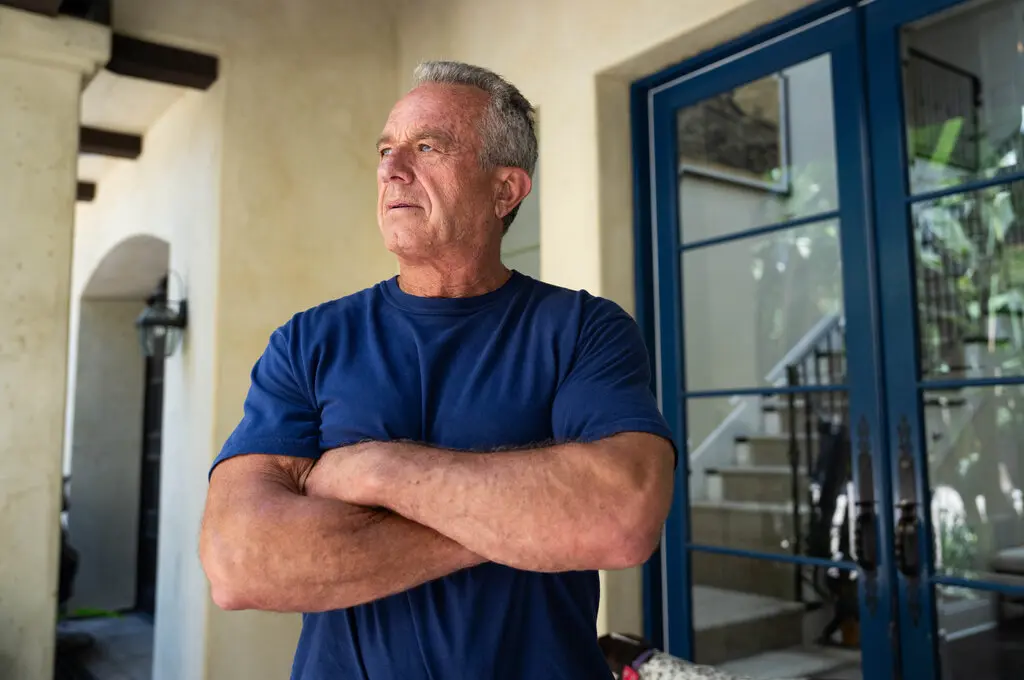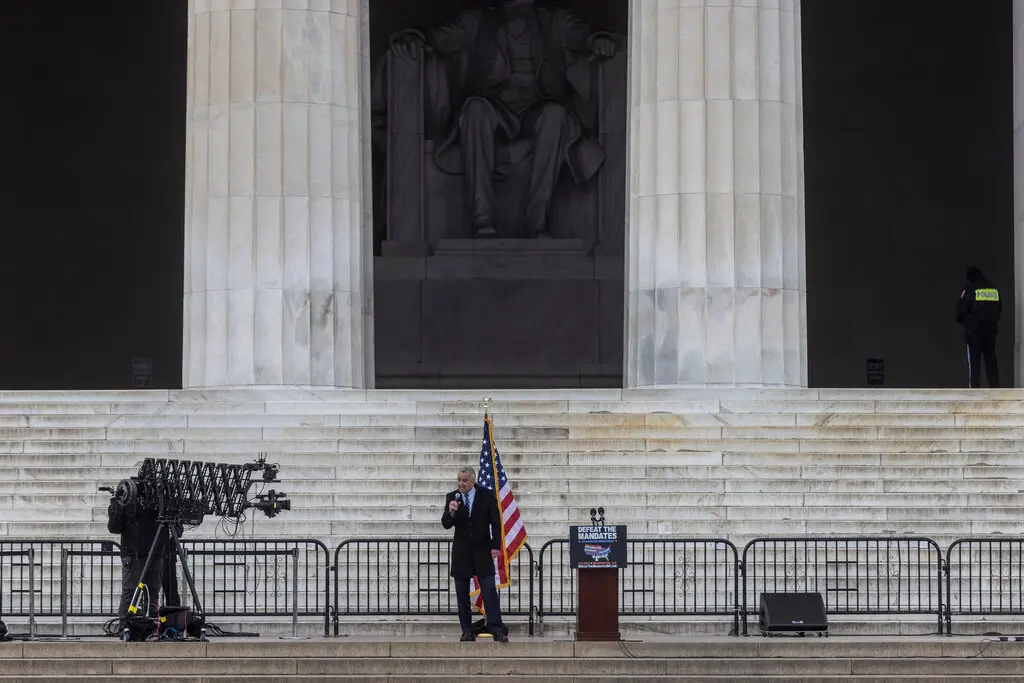
In a move stirring intense debate, Robert F. Kennedy Jr., known for his controversial stances on vaccines and other public health measures, has been nominated as the next U.S. Secretary of Health and Human Services by President-elect Donald J. Trump. His selection has ignited fierce reactions from public health experts, medical professionals, and even his own relatives, who have labeled his viewpoints as dangerously unorthodox.
Kennedy’s stance on issues like vaccination, water fluoridation, and pharmaceutical regulation reflect a mix of skepticism toward corporate influence and a willingness to embrace controversial theories. While his supporters applaud his dedication to reforming public health, critics warn of potentially harmful repercussions stemming from his unconventional ideas.
A Kennedy Legacy Redefined
Robert F. Kennedy Jr., the nephew of President John F. Kennedy, is a figure steeped in legacy yet controversial in his ideology. Unlike his uncle, who championed nationwide vaccination programs to combat infectious diseases, Kennedy Jr. has become a prominent critic of vaccines—a public health measure credited with saving millions of lives.
Kennedy describes himself as a vaccine safety advocate, though detractors frequently refer to him as an anti-vaccine activist. His campaign rhetoric and public declarations have often put him at odds with established medical consensus, earning him a polarizing reputation.
A Troubled Relationship With Vaccination
Kennedy’s views on vaccines have drawn the most attention. He has long promoted the debunked theory that vaccines cause autism—a claim refuted by numerous scientific studies. His critiques gained global notoriety after a 2019 visit to Samoa, where his anti-vaccine messaging coincided with a decline in measles vaccination rates, leading to an outbreak that claimed 83 lives.
Critics argue that Kennedy’s rhetoric undermines public trust in vaccines, a cornerstone of modern healthcare. Dr. Jonathan E. Howard, a vocal opponent of the anti-vaccine movement, has characterized Kennedy’s influence as “a disaster,” citing the tragic consequences of vaccine skepticism in Samoa as an example.

Beyond Vaccines: Mistrust of Fluoride and Pharmaceutical Science
Kennedy’s mistrust of corporate influence extends beyond vaccines. He opposes water fluoridation, a public health measure recognized by the Centers for Disease Control and Prevention (CDC) as one of the 20th century’s greatest achievements. Fluoridation has significantly reduced tooth decay across populations, but Kennedy disputes its safety, citing unfounded concerns.
He has also championed the consumption of raw milk—a practice deemed risky by the Food and Drug Administration (FDA)—and promoted unproven COVID-19 treatments like hydroxychloroquine. Such positions have drawn ire from the medical community, which views them as potentially endangering public health.
A War on Corporate Influence
Kennedy’s broader agenda reveals a deep distrust of corporate involvement in healthcare. He has criticized the FDA for being “captured” by pharmaceutical interests, pointing to the agency’s reliance on user fees from drug manufacturers as evidence of compromised objectivity.
In a 2024 interview, Kennedy declared his intention to reform the FDA and NIH (National Institutes of Health), shifting their focus away from drug development and toward understanding chronic diseases. He has also suggested drastic measures, such as prosecuting leading medical journals like The Lancet and The New England Journal of Medicine under anti-corruption laws, accusing them of publishing “fake pharmaceutical science.”
Unorthodox Beliefs: The Science of Speculation
Kennedy has ventured into highly controversial territory with theories that lack robust scientific backing. He has suggested that COVID-19 might have been engineered to target specific racial groups—a claim widely dismissed by experts. Similarly, he has linked atrazine, a herbicide, to sexual dysphoria in children, drawing on studies that show its feminizing effects in frogs. However, no credible evidence supports similar effects in humans.
Such statements have fueled concerns that Kennedy’s leadership could undermine evidence-based policymaking at the helm of the Department of Health and Human Services.
An Environmental Lawyer Turned Public Health Crusader
Kennedy’s foray into health advocacy stems from his environmental work. Celebrated in 1999 as a “hero of the planet” by Time magazine for his efforts to clean the Hudson River, Kennedy initially focused on removing mercury from waterways. His advocacy expanded into public health when he began investigating thimerosal, a mercury-based preservative used in vaccines until 2001. Despite the preservative’s removal and studies showing no link to autism, Kennedy continued to criticize vaccine safety.
Over the years, Kennedy has leveraged his environmental credentials and public platform to amplify his views, attracting significant support—and controversy—along the way.
The Road Ahead: Reform or Regress?
As the nominee for health secretary, Kennedy would oversee a sprawling department with over 80,000 employees and a $1.7 trillion budget. His potential leadership has sparked widespread concern among public health experts. Dr. Georges Benjamin, executive director of the American Public Health Association, has described Kennedy as “totally unprepared” for the role, citing his lack of relevant expertise.
Even within political circles, Kennedy’s nomination has faced resistance. Former Vice President Mike Pence opposed the decision, pointing to Kennedy’s support for abortion rights as a disqualifying factor for conservative lawmakers.

Supporters See a Reformist Vision
Despite the controversy, Kennedy has found allies who believe his nomination signals a long-overdue shakeup in the healthcare system. Advocates of medical freedom and healthcare reform praise his willingness to challenge established norms and confront corporate interests.
Brian Festa, co-founder of We the Patriots U.S.A., a group opposing vaccine mandates, describes Kennedy’s mission as heartfelt, noting his commitment to making America healthier. Similarly, healthcare entrepreneur Calley Means views Kennedy as uniquely positioned to tackle what he sees as systemic failures in U.S. healthcare.
Conclusion: A Divisive Path Forward
Robert F. Kennedy Jr.’s nomination as health secretary underscores a deep divide in public health policy and governance. While his supporters champion his reformist zeal, critics warn of the risks posed by his unconventional views. As the Senate prepares to consider his confirmation, the nation faces a pivotal moment in determining the future of its healthcare system.
Kennedy’s tenure, if confirmed, promises to be as polarizing as his career, with far-reaching implications for public health and medical science. Whether his leadership heralds meaningful reform or endangers hard-won public health gains remains to be seen.
Trump Builds His Administration
As his team ramps up the transition process, President-elect Donald Trump says his administration will radically reshape the federal government.
-
Health and Human Services: Trump said he would nominate Robert F. Kennedy Jr. to lead the Department of Health and Human Services. Kennedy’s vaccine skepticism and unorthodox views about medicine, including about fluoride in water, make public health officials uneasy.
-
Immigration: Trump’s plans to expel noncitizens on a mass scale are likely to raise prices on goods and services and lower employment rates for U.S. workers, many economists say.
-
Middle East: Trump’s emerging team in the Middle East appears poised to push U.S. foreign policy into even tighter accord with Israel’s far-right government.
-
Skirting the Senate: Trump’s demand that Senate Republicans surrender their role in vetting his nominees poses an early test of whether his second term will be more radical than his first.
-
Slashing Government: Elon Musk and Vivek Ramaswamy have been tapped to lead what Trump called the Department of Government Efficiency, which he said would seek “drastic change.”
